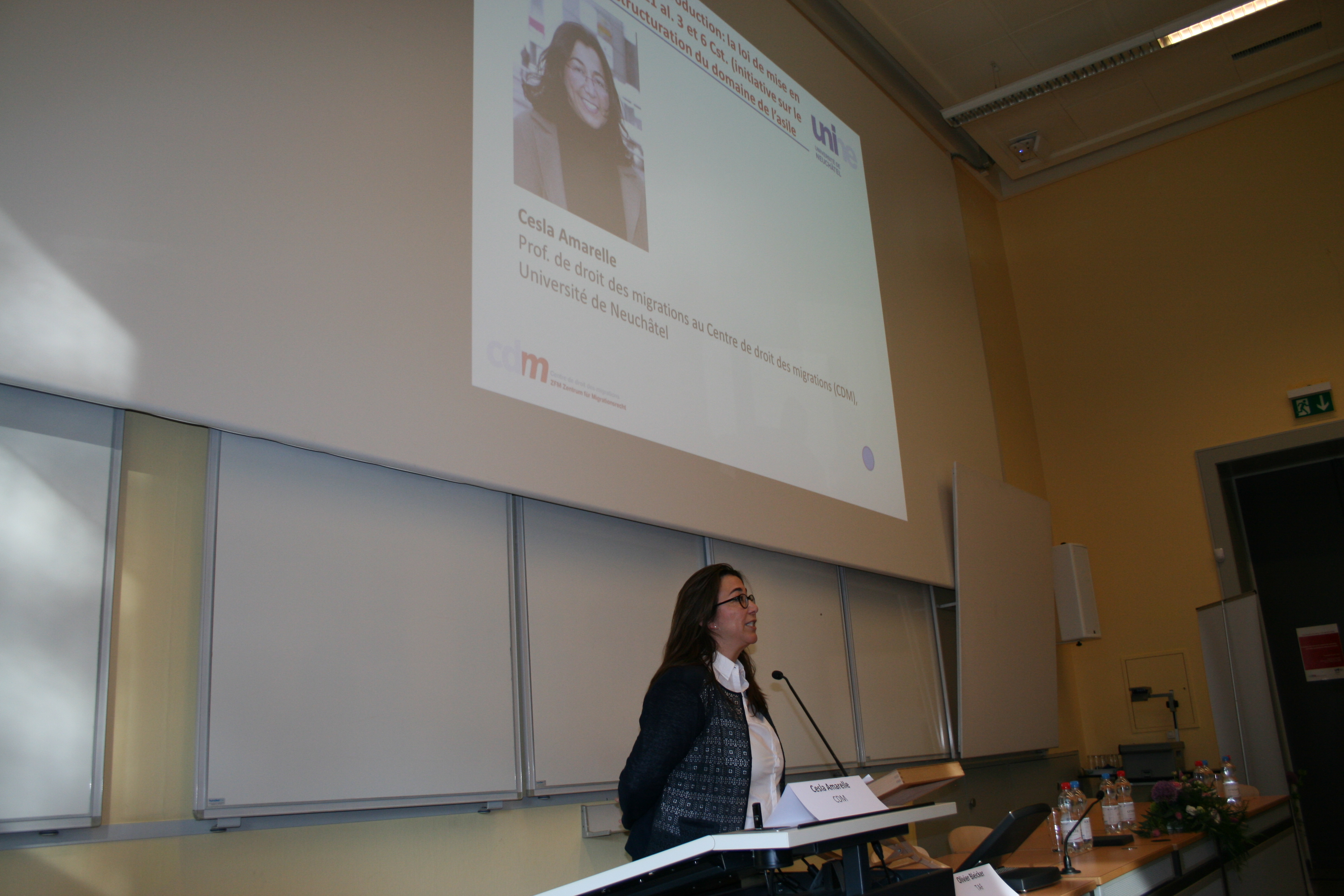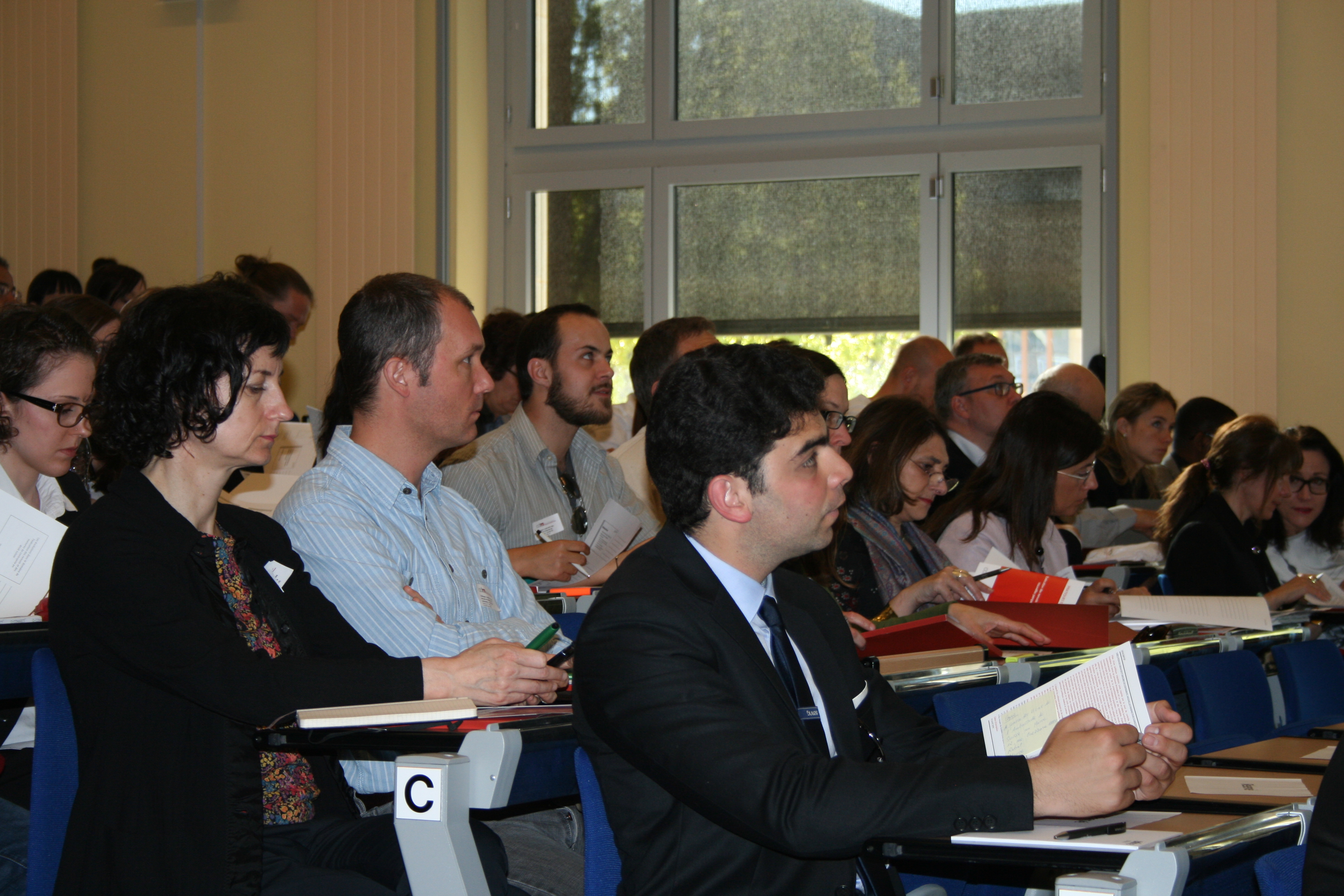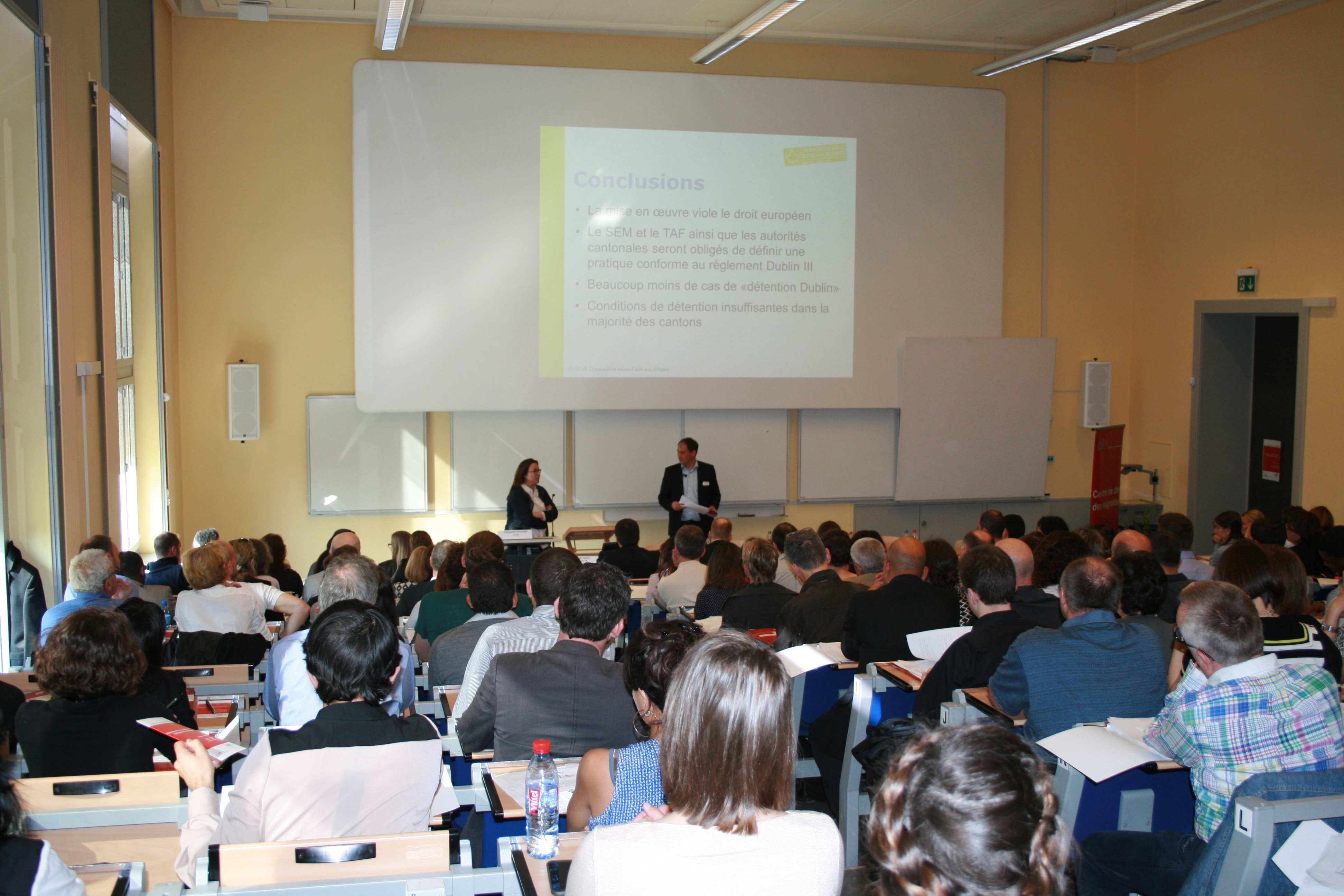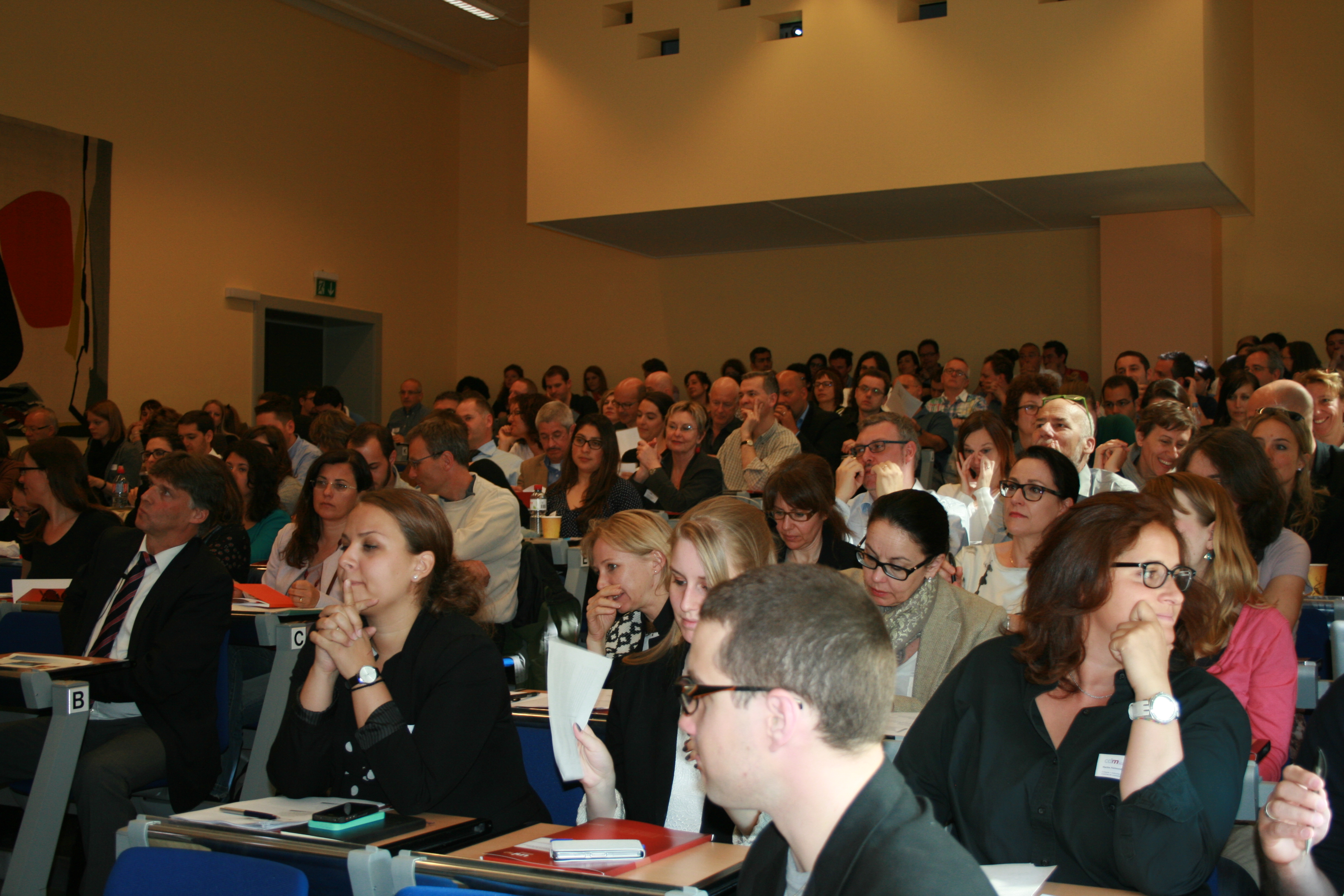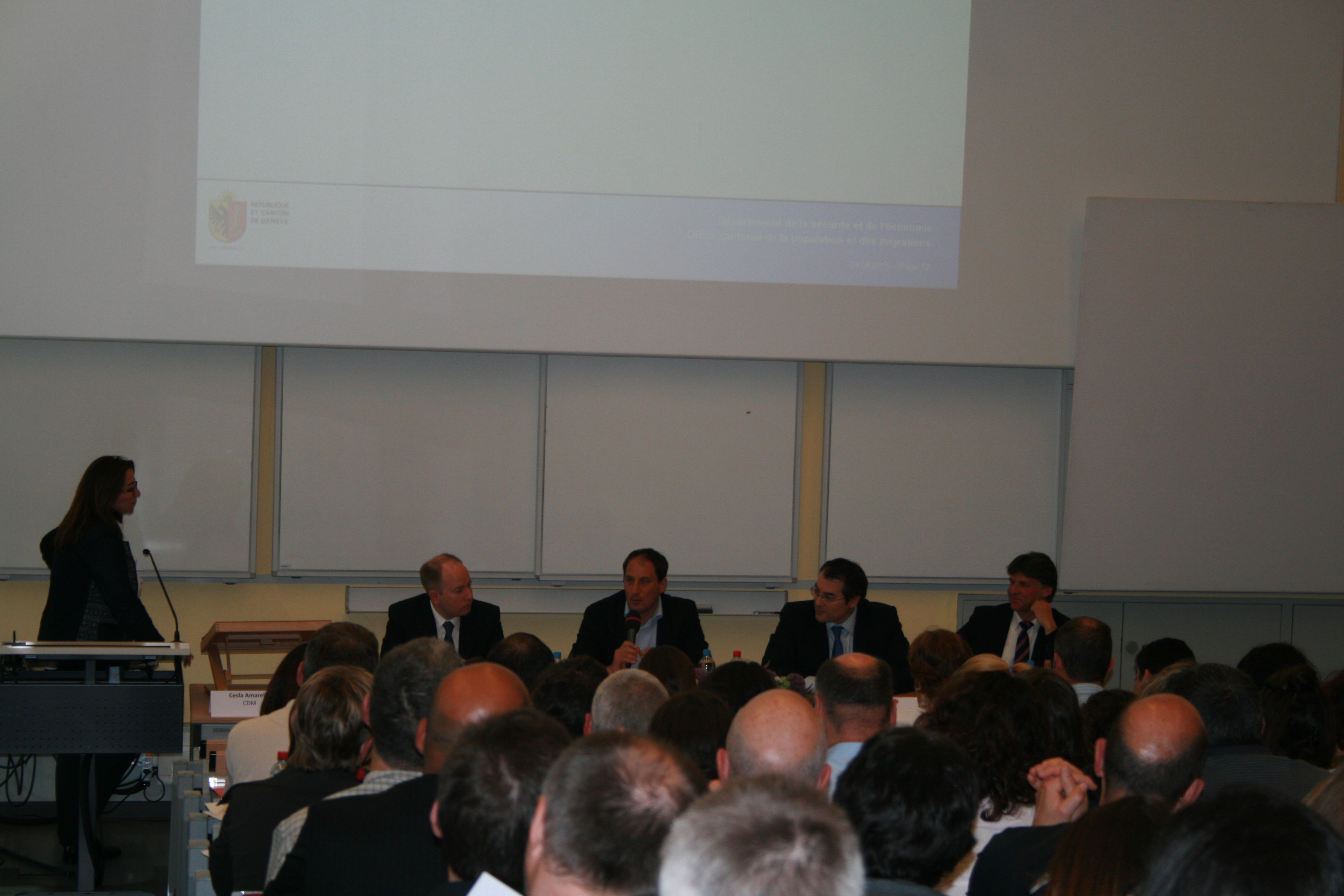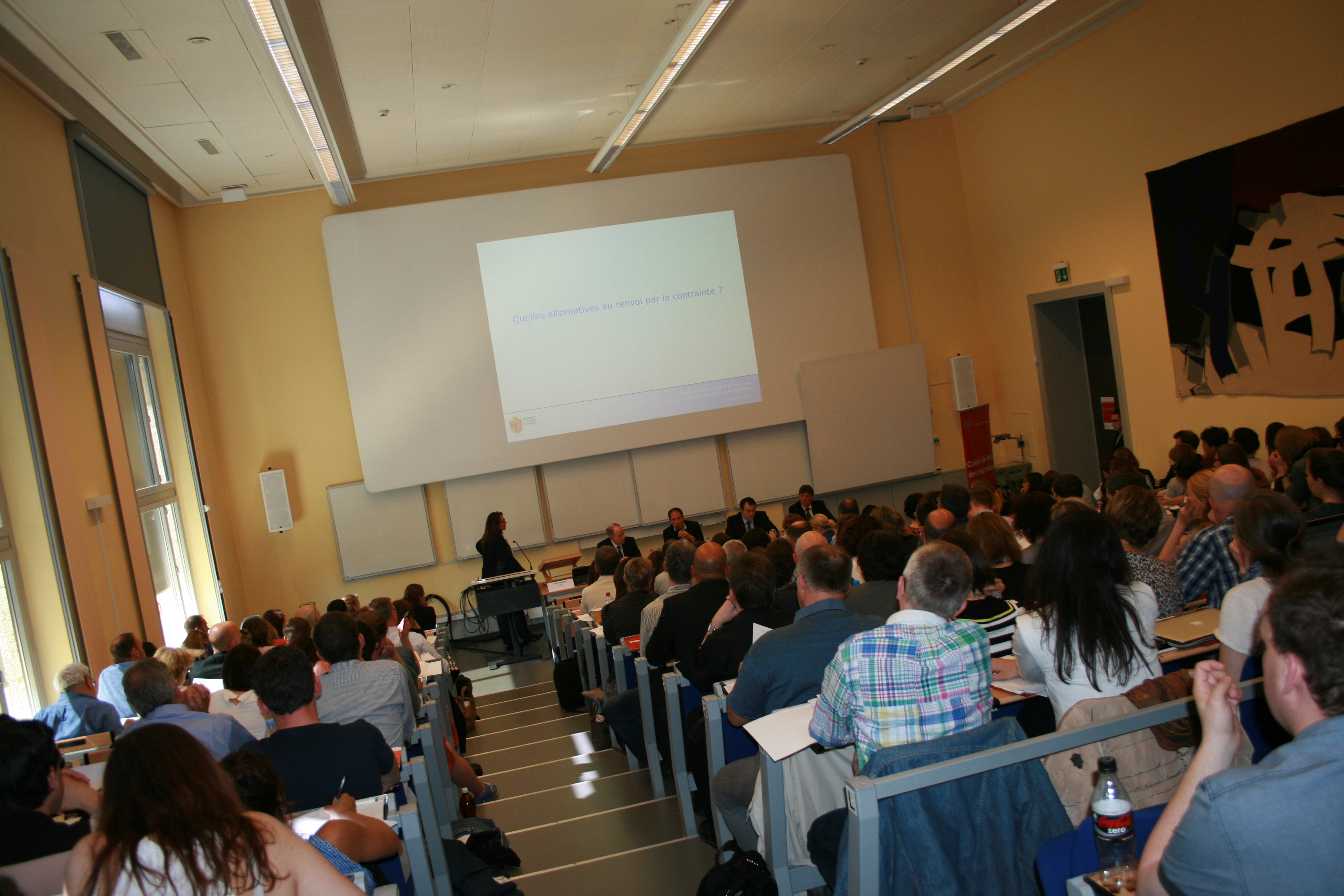Conference archives
Conference "Nouvelles temporalités en droit d'asile: Statut S, admission provisoire et procédure cadencée en ligne de mire" (13.10.2023 - Neuchâtel)
- Description and program
-
Presentations in PDF format
"Mécanismes de protection durables et temporaires à la lumière du droit international des réfugiés – quels enseignements pour la Suisse et les autres États parties à la Convention relative au statut des réfugiés ?" Anja Kug, Head of the UNHCR Office for Switzerland and Lichtenstein
"Les défis des statuts S et F dans le contexte de l’accélération et des procédures cadencées - Nouvelles temporalités en droit d’asile" M. Claudio Martelli, Deputy director of the Secrétariat d’État aux migrations (SEM)
"Pistes et perspectives durables pour les statuts provisoires (statuts S et F) en droit d’asile" Mme Cesla Amarelle, Professor of migration law at the University of Neuchâtel
"Le temps et la procédure d'asile" M. Minh Son Nguyen, avocat, Professor of foreign law at the University of Lausanne
"Analyse et études de cas à l’aune de la temporalité dans les procédures Dublin soumises au droit d’asile" Mme Claudia Cotting-Schalch, Judge at the Tribunal administratif fédéral
"Réflexion et études de cas à l’aune de la temporalité dans les procédures soumises au droit d’asile du point de vue de la Protection juridique" Mme Sofia Amazzough, responsible for legal protection, Caritas Suisse
"Etudes de cas à l'aune de la temporalité dans les procédures Dublin et accélérées" M. Hugo Pérez Perucchi, doctoral assistant at the University of Neuchâtel
-
Conference photos
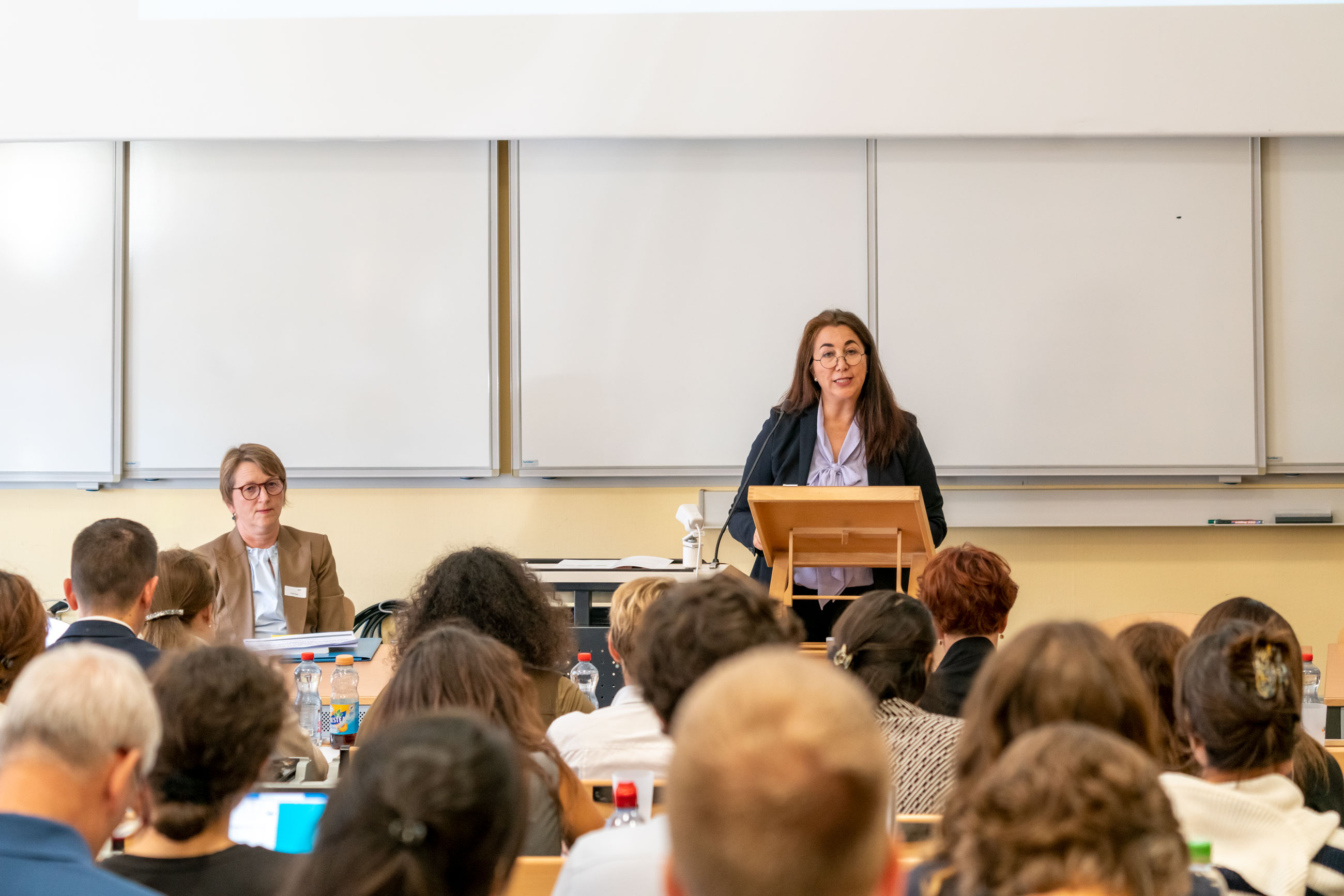
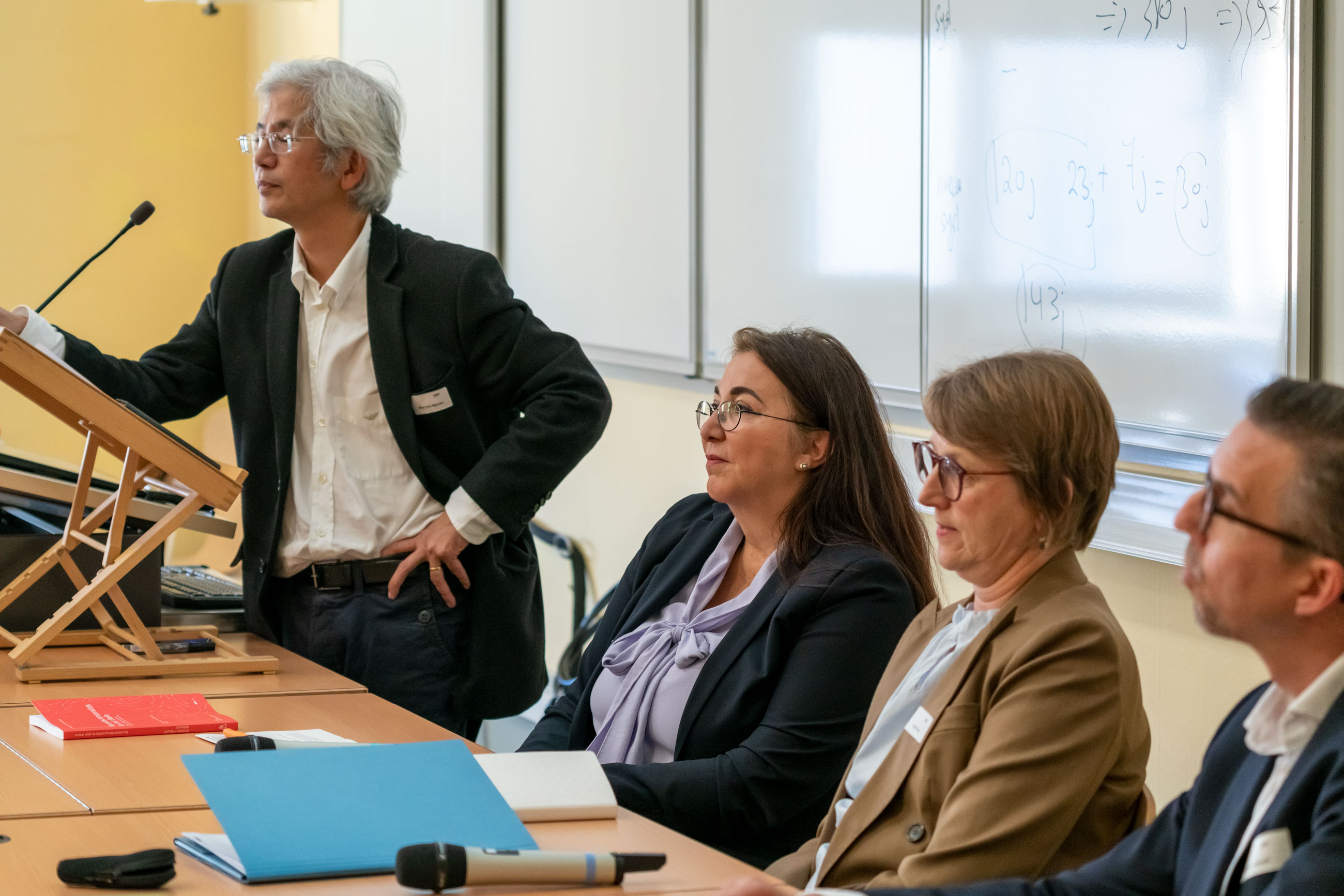
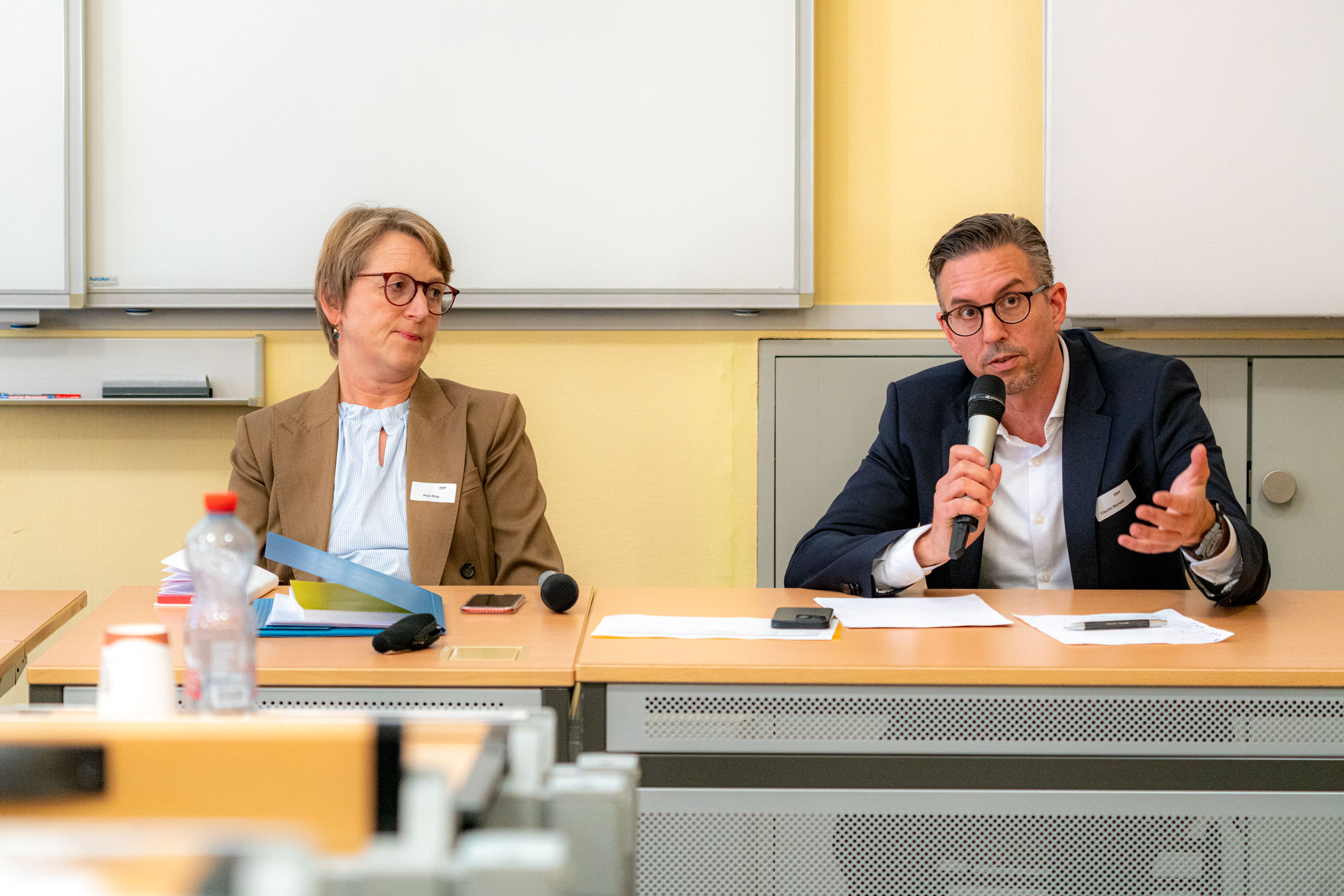
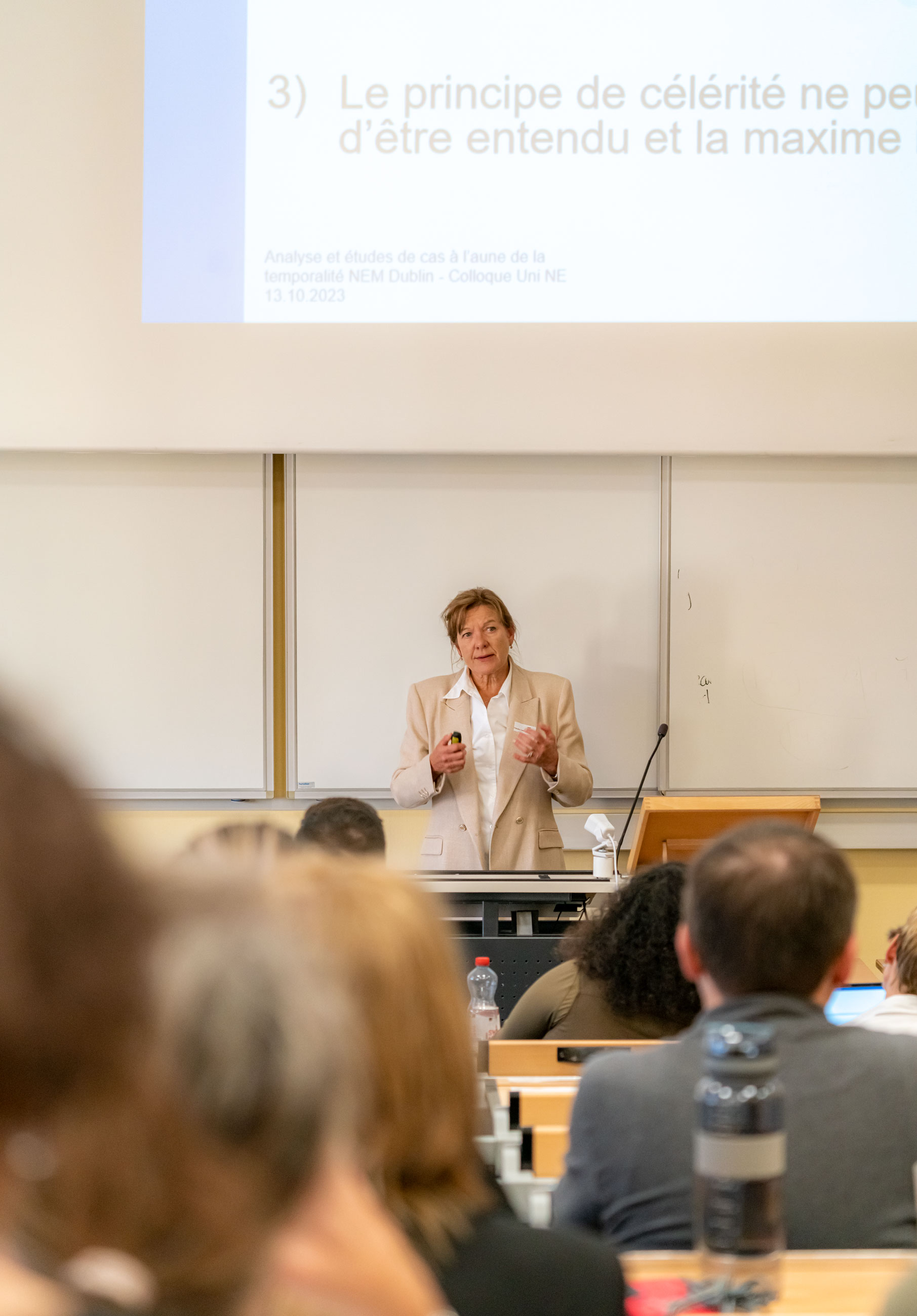
Conference: "Migration in times of crisis" (22 April 2016 - Neuchâtel)
-
Description and program
MIGRATIONS IN TIMES OF CRISIS: CURRENT ISSUES, LEGAL TOOLS AND PERSPECTIVES FOR EUROPE AND SWITZERLAND
The year 2015 was marked by fundamental and profound changes affecting the scale of the challenges of asylum and migration and their perception by public opinion.
Europe is indeed confronted with humanitarian disasters, refugees and migrants on an unprecedented scale and with structural causes that are much more complex and extensive than in the past, linked to civil wars and poverty ranging from Afghanistan to Syria via North Africa and sub-Saharan east. Faced with this dizzying situation, the European Union is putting forward an ambitious European migration agenda (EU-Turkey agreement, sharing of refugees, overhaul of Dublin, etc.). However, European states are reacting, for the moment, in a very dispersed order fluctuating between humanitarian emergencies, defensive closures, military actions and populist pressures. Thus, while Germany tried for a certain time to impose leadership and a dynamic focused on reception, many other states are today choosing to close or control their borders more intensely. Still others mobilize the army or use administrative instruments to make access to asylum more difficult.
For its part, Switzerland has also taken measures, particularly in the area of restructuring the asylum area and fast-tracks. The diversity of these reactions gives rise to numerous questions both in terms of law and that of the future of migration policies. This conference aims to understand these new political issues and the legal mechanisms linked to this major topical subject for the 21st century. More precisely, it offers an inventory of the situation and migration policies in the European Union, to understand the extent of the actors at work with the instruments available, to question the possibilities and limits of European instruments such as as Dublin and to identify methods of good governance in migration matters at the national, European and international levels. -
Presentations in PDF format
"Les nouveaux enjeux de l'immigration et de l'asile en Europe." Prof. Etienne Piguet, University of Neuchâtel
"L'importance de l'élargissement des voies d'accès légales à l'Europe." Mme Anja Klug, Director of the HCR Switzerland and Liechtenstein
"L'harmonisation des standards d'accueil et la refonte du système Dublin." Dr François Gemenne, Universities of Liège and Versailles Saint-Quentin-Yvelines
"Réformer Dublin, et si oui comment?" Prof. Francesco Maiani, University of Lausanne
"La coopération entre l'Europe et la Suisse face à l'augmentation des flux de réfugiés et de migrants." Dr Markus Peek, Section Head, International cooperation: Europe (SEM)
"La crise migratoire et le traitement des demandes d'asile en Suisse." M. Pierre-Alain Ruffieux, Head of Division, Asylum management area (SEM)
"Les enjeux sur place: la situation des réfugiés dans la pratique." Mme Eliana Alvarez, Coordinator within the United for Peace organization
-
Conference photos
Conference: "Carrying out repatriations and restraining measures" (24 April 2015 - University of Neuchâtel)
-
Description and programme
EXECUTION OF REFERENCES AND CONSTRAINT MEASURES: NEW SWISS AND CANTONAL PERSPECTIVES
Pillar of a Swiss migration policy inspired by the concern for control of territory and borders, the expulsion of foreign people is a subject in full evolution which raises intense questions around proportionality and methods of execution. On the one hand, the new project for the implementation of the popular initiative “For the return of criminal foreigners” (new articles 66a and 66a bis of the Penal Code) which will be adopted by Parliament in March 2015, ratifies a new system of “moderate automatism” accompanied by a strictness clause. The so-called “implementation” initiative which will be submitted to the people in 2016 also constitutes another emblematic illustration of these new upheavals. Furthermore, the Confederation is currently organizing a restructuring around the thirty establishments which already currently provide services in Switzerland in terms of administrative detention (art. 75 ff. LEtr) and which bring together people from the field of asylum and the law on foreigners. The current trend is in fact to significantly increase the number of detention places by creating new administrative detention centers, in particular as part of the restructuring of the asylum field which provides for the creation of around ten new “departure centers” including three in French-speaking Switzerland. This development encounters significant difficulties. In addition to the great complexity and technicality of legal instruments, the human and material costs are sometimes considerable and the obstacles are numerous, particularly in the context of obtaining travel documents, departure preparations, expulsion procedures and their supervision. , respect for the principle of non-refoulement and high investment costs to ensure in particular the financing of legal, medical and police personnel.
The objective of the proposed conference is to better understand this dual perspective of changes and these new legal mechanisms by highlighting the fundamental role played by the cantons with regard to the application of constraint measures as well as the execution of referrals. Bringing together speakers from the academic world, federal and cantonal public institutions as well as international and non-governmental organizations, this conference examines the theme of referrals from a legal and multidisciplinary angle, focusing on the evolution of legislation in this area but also on its concrete implementation by the various actors concerned. The presentations and round tables planned will give rise to a discussion on detention and return practices and will constitute a space for critical reflection around alternatives and/or possible developments in this area. -
Presentations in PDF format
"Les évolutions dans le domaine de l'exécution des renvois et des mesures de contrainte en droit suisse." Olivier Bleicker, clerk-editor at the Tribunal administratif fédéral
"Les nouvelles spécificités du transfert-renvoi des étrangers dans la loi sur les étrangers après Dublin III." Dr. Constantin Hruschka, Head of protection, Swiss Refugee Aid Organization, OSAR
"L'exécution des renvois par les cantons et ses limites." Sylvain Astier, Head of the return Division, Secrétariat d'Etat aux migrations, SEM
"La mise en oeuvre des renvois par les cantons: l'exemple du canton de Genève." Bernard Gut, General manager of the Office cantonal de la population et des migrations, OCPM
"Les mesures de contrainte dans la pratique des polices cantonales et les vols FRONTEX." Régis Mergy, Sergeant-major at the Emergency Police and responsible for returns for the canton of Neuchâtel, and Marika Raimondo, Head of the legal department of the Police of Neuchâtel
"Les accords européens de réadmission vus depuis le Sud: pourquoi cela ne fonctionne pas?" Dr. Mehdi Raïs, researcher in public law and political science, specialized in the study of readmission agreements, Morocco
"Les alternatives à la détention administrative." Dr. Joachim Stern, Head of the legal service, UNHCR Switzerland and Liechtenstein
-
Conference photos
Conference: "Asylum Law in the face of reform" (31 May 2013 - University of Neuchâtel)
-
Description and programme
The evolution of the right to asylum throughout Europe is marked by strong tensions and profound changes. At the heart of the ongoing reforms are a growing number of political initiatives. Some have as a priority the objective of controlling borders and reducing the number of asylum applications. Others rely above all on a support system allowing the person requesting protection to be treated correctly and fairly.
In Switzerland, the three current revisions of the Asylum Law are part of this ambivalent political and legal construction. They revolve around the acceleration of procedures (speed of the system, new procedural guarantees, improvement in the prevention of dysfunctions) and the restructuring of the asylum field (new reception capacities, improvement of solidarity between authorities cantonal and federal). The implementation of “test phases” over the next two years, the drastic reduction of appeal times to 10 days and processing times to 140 days, as well as the project for a new federal center in Zurich, which will accommodate nearly 500 applicants asylum, are clear illustrations of these reforms.
The proposed conference aims to better understand the issues and the new legal mechanisms introduced by these asylum reforms. It brings together central players in the issue - representatives of the authorities, researchers and practitioners - who will provide their particular specialist insights into these changes. All of the themes covered are the subject of a publication and make it possible to outline the perspectives of critical legal work around this burning and sensitive subject. -
Presentations in PDF format
"Les nouveautés européennes en matière de procédure d'asile." Francesco Maiani, Professor at the IDHEAP, Lausanne
"Le tribunal fédéral et l'asile." Peter Uebersax, Professor at the University of Basel
"Quel rôle pour les avocats dans la nouvelle procédure d'asile?" Christophe Tafelmacher, lawyer specializing in the field of asylum, Lausanne
"La restructuration du domaine de l'asile en Suisse et l'accélération des procédures. Les phases-test dans la pratique." Mario Gattiker, Director of the Federal Office of migrations (ODM)
"Les perspectives de la protection juridique dans le contexte actuel et futur de la loi sur l'asile." Karine Povlakic, Legal aid service for exiles (SAJE)
"Le rôle des ONG dans le nouveau management de l'asile." Philippe Bovey, French-speaking secretary of the Swiss Protestant (EPER)
Conference: "The integration of foreign nationals put to the test by Swiss law" (15 June 2012 - University of Neuchâtel)
-
Description and program
Integration is an essential pillar of migration policy, which tends to preserve the cohesion and social balance of the host State in the face of the establishment of migrants on its territory. Despite its generalization, the notion of integration has disparate and evolving definitions and applications. Its real meaning fluctuates depending on how migrants settle and the welcome they receive. It involves significant uncertainties, both in terms of its legal nature and its effects and the sanctions associated with its default. In this context, we have observed a paradigm shift since 2003, which is essential both at the national and European level. While in the past integration only constituted a public policy objective to support migrants, today it is increasingly understood as a duty. In this sense, the integration policy aims to introduce compulsory integration mechanisms at all stages of the migratory journey.
In Switzerland, the notion of integration is currently mainly used as the main criterion for the granting of naturalization as well as for the issuance of certain permits (cases of hardship). In its new draft partial revision of the law on foreigners concerning integration, the Federal Council intends, however, to establish a real duty of integration, by proposing to make good integration a prerequisite for authorization of residence and establishment, as well as provisional admissions. Various measures are proposed, notably in terms of family reunification (linguistic knowledge), free movement of people (integration recommendations) as well as in terms of integration agreements, which could be made binding in the cantons for certain cases deemed problematic.
The conference brings together judges, researchers and practitioners who provide their specific insights on this theme. All of the presentations and themes covered will be the subject of a publication. -
Presentations in PDF format
"La notion d'intégration dans le droit suisse des migrations et dans les réformes en cours (LEtr, LAsi, LN)." Thomas Facchinetti
"La pratique de l'intégration dans les cantons et la marge de manoeuvre du fédéralisme." Rosita Fibbi
"Etudes de cas: l'intégration dans la LEtr (cas de rigueur)." Martine Dang
"Etudes de cas: l'intégration dans la LAsi (cas de rigueur)." Blaise Vuille
"Etudes de cas: l'intégration dans la LN." Céline Gutzwiller
Conference: "Migration and family reunion" (18 November 2011 - University of Neuchâtel)
-
Description and program
Family reunification has always been the subject of sensitive issues. The way in which the law and the courts weigh the interests of migrants in the reconstitution of the family unit is very evolving. Generally speaking, migration law tends to strictly govern family life so that the evolution of family reunification does not necessarily follow that of family law. However, when it comes to the free movement of people, family reunification is conceived more broadly. The situation is also particular from the perspective of the right to asylum. Over the last three years (2009-2011), case law on family reunification has essentially been marked by significant relaxations for both European and non-European nationals. The Federal Court thus made it possible to broaden the notion of “reverse family reunification”. Furthermore, the new “LEtr” no longer makes it possible to justify the application of the restrictive conditions imposed by the old case law which was based on the fact that article 17 LSEE required that the child live with “his parents” ( “partial family reunification”). The Federal Court thus takes fully into account the evolution of society, in particular the increase in divorces and reconstituted families which leads to an increase in requests made by one of the parents residing in Switzerland, with the aim of obtaining a residence permit for one or more of his unmarried children under the age of 18 living abroad. In this context of constant relaxations in terms of family reunification, the ECtHR is not left out. Its case law based on Article 8 ECHR is also innovative and should lead Swiss law to re-examine certain questions, in particular the relevance of the condition of the assured right of presence. The conference brings together judges, researchers and practitioners who will provide their specific insights on this subject. All of the themes covered are the subject of a publication and make it possible to outline the perspectives of critical legal work around this sensitive subject.
-
Presentations in PDF format
"Le système légal du regroupement familial." Minh Son Nguyen
"La pratique jurisdictionnelle au uplan cantonal." Danièle Revey
"La jurisprudence du Tribunal fédéral." Peter Uebersax
"Les paradoxes de la pratique juridictionnelle au plan européen selon la CourEDH." Cesla Amarelle
"Les paradoxes de la pratique juridictionnelle au plan européenn selon la Cour de justice de l'Union européenne." Véronique Boillet
"Etudes de cas en matière de regroupement familial." Antoine Campiche
Conference: "Repatriation and its execution" (17 June 2011 - University of Neuchâtel)
-
Description and programme
The issue of referrals is a complex issue which has recently undergone significant developments. At present, it is no longer possible to think about this subject in a strictly national framework because its issues now have a European and international dimension. Current law reflects this trend. To illustrate this, it is enough to refer to the standards relating to the Schengen/Dublin system or to the Return Directive, adopted by Switzerland and entered into force on January 1, 2011. The administrative procedure and organization are strongly impacted and internationalized. The issue of dismissal is also in the news due to internal political considerations. We are thinking in particular of the recent acceptance of the initiative on the removal of criminal foreigners. Having to be translated into legislative terms, this unprecedented political-legal event is struggling to find an adequate outcome as it stands. The above cannot overshadow a central element, namely respect for human rights. On several occasions, between 2010 and 2011, the European Court of Human Rights condemned Council of Europe states for violating protective standards in matters of deportation (see on this subject the M.S.S. case or even Jusic).
-
Presentations in PDF format
"Les enjeux fondamentaux du renvoi des étrangers dans une perspective européenne et internationale." Prof. Catherine de Wenden
"Les renvois et leur exécution en droit international et européen." Prof. Cesla Amarelle
"Les renvois et leur exécution en droit suisse." Prof. Minh Son Nguyen
"La jurisprudence en matière de renvois." Claudia Cotting-Schalch
"Cas choisis." Yves Hofstetter
Conference: "The principle of non-repatriation" (12 November 2010 - University of Neuchâtel)
-
Description and program
The principle of non-refoulement is set out in numerous general instruments for the protection of human rights such as the ECHR, the UN Convention against Torture and the UN Covenant II. In asylum law, it prohibits the expulsion and return of a person to a State "where his life or his freedom would be threatened because of his race, his religion, his nationality, his belonging to a certain social group or its political opinions” (article 33 Geneva Convention relating to the Status of Refugees). The development of increasingly defensive instruments and practices intended to limit the flow of refugees (Dublin system, notions of safe third state, “super safe” third state or first country of asylum) or undesirable migrants (plans to systematize the returns of foreign offenders) raise important questions as to the exact scope of this principle. Currently, the principle of non-refoulement is at the origin of a considerable number of cases. Although recent case law constantly pushes back the limits of the applicability of this principle, several questions remain unanswered (criteria for assessing the risk incurred or even its realization).
The conference entitled “The principle of non-refoulement. Foundations and recent practical issues” aims to better understand the new legal treatment of non-refoulement. It brings together human rights actors, researchers and practitioners whose contributions will offer an overall vision of this rapidly changing principle as well as avenues of reflection adapted to the current context. -
Presentations in PDF format
"Les aspects constitutionnels et conventionnels du principe de non-refoulement en relation avec les migrations." Prof. Pascal Mahon
"Les principes directeurs et la pratique de l'UNHCR relatifs au principe de non-refoulement." Susin Park
"Une équation difficile: renvois Dublin, principe de non-refoulement et standards européens en matière d'asile." Prof. Francesco Maiaini
"Le principe de non-refoulement dans la jurisprudence du TF et du TAF." Prof. Cesla Amarelle
"Cas pratiques à la lumière du principe de non-refoulement." Denise Graf et Prof. Minh Son Nguyen
- Conference photos
Conference video: "The principle of non-repatriation"
Conference: "Migration and the economy" (21 May 2010 - University of Neuchâtel)
-
Description and program
Migrant work is today subject to increasing mobility while being limited by socio-political reasons. In this context of constant tension, economic migration law has undergone significant developments in recent years (reform and limitations of the authorization system, status of cross-border workers, service providers, rights of workers without status, support measures , etc). In practice, this right raises not only the question of labor market regulation measures but also that of the protection of migrants themselves. The “Migrations and Economy” conference aims to better understand the legal treatment of the phenomenon of economic migration. It brings together economic players as well as researchers who will provide their specific insights into this phenomenon through brief summary presentations.
All of the themes covered are the subject of a more in-depth publication which offers an overall vision of economic migration law and offers avenues for reflection adapted to the current questions of practitioners and citizens. -
Presentations in PDF format
"Le droit aux prises avec les migrations économiques." Prof. Minh Son Nguyen
"Migrations du travail et commerce international: enjeux et perspectives." Marion Panizzon
"Les prestataires de services en droit européen et dans l'accord sur la libre circulation des personnes." Prof. Sarah Progin-Theuerkauf
"Les migrations aux fins d'emploi: aperçu de la réglementation en vigueur en Suisse." Serge Gamma
"Le cas spécifique des frontaliers." Bertrand Clerc
"Les migrations sans statut légal, le travail au gris et au noir." Prof. Cesla Amarelle
-
Conference photos
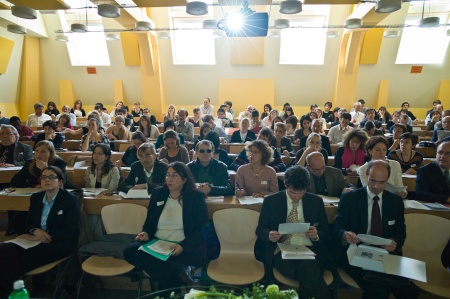


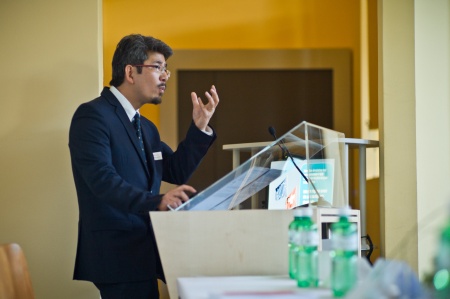






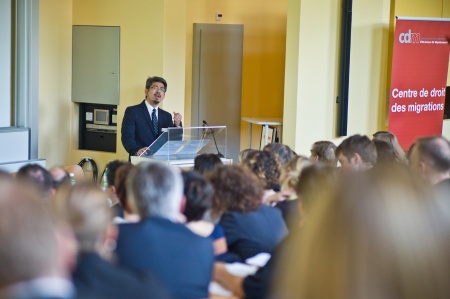
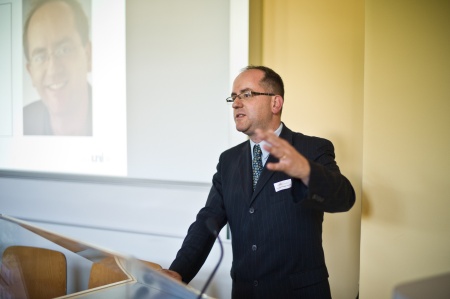


Archives des journées suisses du droit de la migration
- 13èmes journées suisses du droit de la migration
- 12èmes journées suisses du droit de la migration
- 11èmes journées suisses du droit de la migration
- 10èmes journées suisses du droit de la migration
- Conférence du Dr. Peter Maurer, président du CICR, lors des 9èmes Journées suisses du droit de la migration
- 9èmes journées suisses du droit de la migration
- 8èmes journées suisses du droit de la migration
- 7èmes journées suisses du droit de la migration
- 6èmes journées suisses du droit de la migration
Archives des colloques d'expert-e-s
- Le futur de l'admission provisoire, Université de Fribourg, 11.12.2015
- Les bénéficiaires longue durée de l’aide d’urgence: défis et perspectives, Université de Fribourg, 21.2.2014


